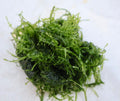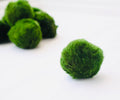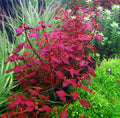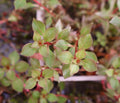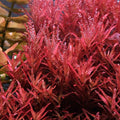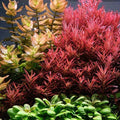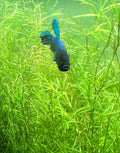How to Choose Floating Plants for Your Tank?
In this blog, I will teach you how to choose the best floating aquarium plant for your setup.
There are a few things to consider before choosing a floating plant:
-
Light condition
-
Type of fish
-
Aquarium size
-
Water flow
-
Level of maintenance
Does Your Aquarium Have Artificial Light?
Just like other plants, floating plants require light in order to grow and photosynthesize. Some of them require a lot of light, while others can grow in low-light conditions.
-
If you don't have artificial lights, choose a floating plant that can survive in natural light.
-
If you do have artificial light, you can choose any type of floating plant.
What Type of Fish Are You Keeping?
-
If you keep only guppies, you can choose any type of floating plant.
-
If you keep guppies and goldfish together, select a fast-growing floating plant since goldfish tend to eat them.
-
Mollies and platies may also nibble on the roots, so gentle-rooted plants may suffer.
What is the size of your tank?
Some floating plants can grow really big and have huge roots. In a smaller tank (less than 10 gallons), you can't keep huge floating plants—they will overgrow your whole tank and take space from the fish. Choose small-sized floating plants with minimal root systems for smaller tanks.
Is the Water Flow Strong or Slow?
Floating plants can grow in still or slow-moving water. In aquariums with strong water movement (external or powerful internal filters), floating plants will struggle. Their roots won’t grow well, and the constant splashing will damage their leaves.
What Level of Maintenance Can You Afford?
Most floating plants grow very quickly. Some can cover the entire fish tank in just a week.
-
If you can do weekly maintenance, choose any floating plant.
-
If not, choose a slow-growing floating plant.
5 Best Floating Aquarium Plants for Guppies
Here are my five favorite floating plants, which I recommend for guppy tanks. Certainly, there are several others out there, but these are my favorites:
1. Frogbit
-
Easy to keep
-
Reproduces at a manageable rate
-
Shoots out runners to form new plants
-
Fluffy, long roots—great hiding spots for guppy fry
-
May not be suitable if you have snails (they can damage the plant).
2. Dwarf Water Lettuce
-
Very similar to Frogbit
-
Smaller but can grow large in low-flow aquariums
-
Grows fast, needs at least 10 hours of light daily
-
Can cover the entire surface if unchecked
-
A bit more finicky but still easy
3. Salvinia
-
Includes varieties like Salvinia natans and minima
-
Medium growth rate, needs strong light
-
Invasive—can block all light
-
Grows like a vine
-
Cup-shaped leaves stay on the water's surface thanks to tiny hairs.
-
Great for open aquariums
4. Red Root Floater
-
Beautiful with potential for red roots under the right conditions
-
Requires good light and nutrients (including iron)
-
Can melt away without light
-
Produces small white flowers if well maintained
-
Adds color; moderate care needed
5. Duckweed
-
Grows very fast (doubles every 24 hours)
-
Best for tanks with high nutrients
-
Excellent at nitrate removal and algae control
-
Superfood with 40% protein
-
Can be turned into homemade fish food
-
Needs regular maintenance
Conclusion
Floating plants are a great addition to guppy aquariums and fish tanks in general. They look good and can help remove nitrates from the water, making it cleaner. I highly recommend keeping floating plants, especially because most of them are easy to care for. Some floating plants can be used for breeding guppies because their root system will provide enough coverage and hiding spaces for guppy fry.
Please keep in mind that floating plants need some maintenance. They usually reproduce at a fast rate and will cover the whole water surface of your guppy fish tank. From time to time, a part of your plants has to be removed to allow good oxygen exchange at the surface of the water.



